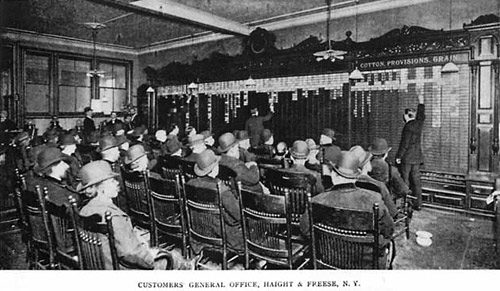A rags-to-riches-to-rags story that played out in Tombstone, Arizona, and Chicago, Illinois, was reported in the January 24, 1896 Brooklyn Daily Eagle. An excerpt:
“He used to be called the Duke of Tombstone when an Arizona settlement marveled at the recklessness of a man who bathed three times a day when water was five cents a gallon. Edwin Fields in those days changed his white flannel suit whenever the smallest blemish in the way of dust was noticeable and rode behind a pair of horses that were a sensation in a community where burros were the highest type of draft animals. Now he is poor old Ed Fields, and when he gets out of the county hospital, where a Harrison Street police ambulance took him last night, he will be taken to the poorhouse at Dunning to spend his few remaining years in contemplation of the time when he owned a large part of the city of Tombstone and a mine worth more than half a million. Too poor to ask for help, yet sorely in need of it; too proud to ask for money and yet having a brother whose fortune is vast, he was taken from a lodging house at 68 Thirteenth Street against his will, on the strength of a certificate obtained by Dr. A.W. Cowley, who had found that his mind was failing and that he needed comforts he once would have scorned.
Dr. Joseph H. Greer of 307 Oakley Avenue knew Fields in Arizona and had assisted him from time to time during the past three years in Chicago.
‘I went to Tombstone, Ariz., in 1879,’ said Dr. Greer, ‘and Fields was there before me, although the town contained but seventy-five people at that time. He was squatting on some mining property, which was not supposed to be of much value. But the town grew to 15,000, and he owned two-thirds of the town site, so his rents increased until they gave him an income of $4,000 a month. The mine which he owned was called the Gilded Age, and proved to be a rich property. Fields’ title to it was was a little shaky, but he was backed by Boston and New York capital, and in the end secured a perfect title. He sold the mine in 1881 or 1882 for $600,000 in cash, every cent of which went to him. After the town grew and Fields amassed his wealth he assumed a mode of life that made him the most conspicuous character in the West.

“He had lost most of his property in speculation on the board of trade, and then had taken to the bucket shops.”
‘I left Tombstone and settled in Chicago. One day during the World’s Fair period a seedy looking individual stepped into my office and I recognized Edwin Fields. I asked him what he was doing, and he told me with a mournful smile that he was store man at the Southern Hotel. His salary, he said, was $14 a month. Where had his money gone? Well, I asked him that one day, for I could not understand how a man who never drank, never played cards or gambled to my knowledge, could have squandered a cool million of dollars, which amount he certainly possessed at one time. He told me that he had lost most of his property in speculation on the board of trade, and then had taken to the bucket shops, where the rest of his money had taken wings.
‘He was at this time, even with his pittance of a salary, drifting daily to the bucket shops in the vain endeavor to retrieve his lost fortune. I do not know his birthplace, but he was an Eastern man and well connected. He has a sister living at Steubenville, O.; a brother at Farleys, N.M., who owns a sheep ranch; and another brother who owns an immense coconut plantation in the Samoan islands. Such has been his pride or perverseness that he never would seek aid from them. He has roomed at the house of Mrs. Fitch, 68 Thirteenth Street, whenever he was without employment. I fear he will not live long, as he is suffering from a complication of diseases and is now an old man.'”
Tags: Dr. A.W. Cowley, Dr. Joseph H. Greer, Edwin Fields, Mrs. Fitch

